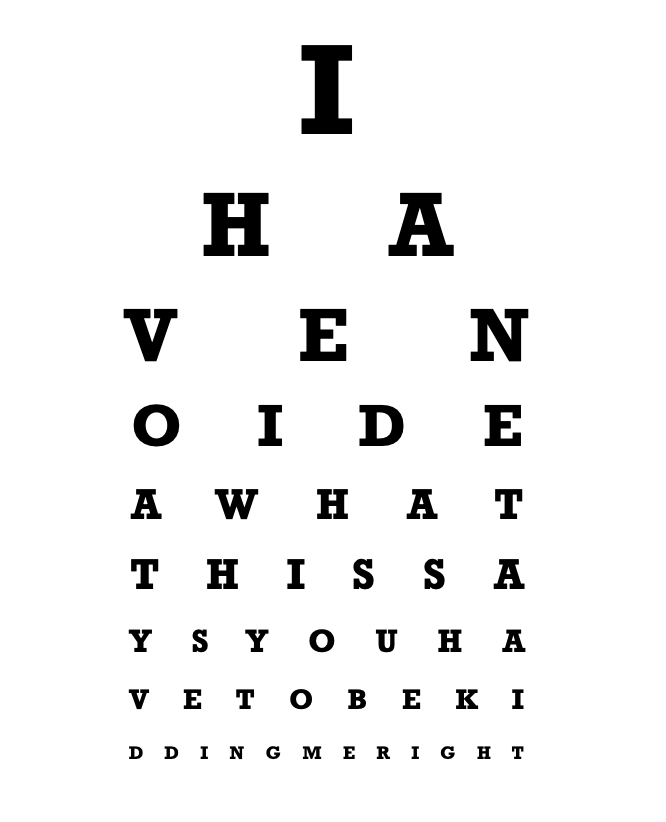Conceitos Básicos
The author humorously highlights the signs of middle age through deteriorating eyesight, emphasizing the relatable experiences that indicate this life stage.
Resumo
As middle age approaches, changes in eyesight become apparent, symbolized by humorous scenarios like glasses clinking during a kiss. The definition of middle age varies between 40 and 60, with humorous reflections on aging and relatability to common lists of middle-aged behaviors.
Customize Summary
Rewrite with AI
Generate Citations
Translate Source
To Another Language
Generate MindMap
from source content
Visit Source
medium.com
The Eye Test of Middle Age
Estatísticas
"middle age is defined as: The period of human adulthood between the ages of 40 and 60"
"Shelley Emling’s essay makes note that middle age doesn’t start until you’re 53."
"of the 40 items included, only eight I answer no to"
Citações
"I have no idea what this says. You have to be kidding me, right?" - Jeffrey Pillow
"Contrary to Emling’s assertion the start date is 53 years old is my own examination of this list in which I found of the 40 items included"
Principais Insights Extraídos De
by Jeffrey Pill... às medium.com 03-11-2024
https://medium.com/thought-thinkers/the-eye-test-of-middle-age-42b37e2cfe2c
Perguntas Mais Profundas
What societal factors contribute to our perceptions of middle age?
Societal factors that contribute to our perceptions of middle age include cultural norms, media representations, and generational differences. In many cultures, reaching middle age is often associated with certain milestones such as career stability, marriage, and parenthood. The media also plays a significant role in shaping how we view middle age through portrayals of midlife crises or the so-called "empty nest syndrome." Additionally, generational differences can influence perceptions of middle age, with younger generations viewing it differently from older ones due to changing social norms and expectations.
Is there a cultural bias in defining middle age based on specific behaviors?
There can be a cultural bias in defining middle age based on specific behaviors such as gardening or bird feeding as mentioned in the context. Some cultures may place more emphasis on these activities as markers of entering middle age, while others may not consider them relevant at all. This bias can stem from traditional beliefs about what constitutes appropriate behavior for individuals at different stages of life. It's essential to recognize that these definitions are subjective and can vary widely across different cultures and societies.
How do personal experiences shape one's acceptance or denial of entering middle age?
Personal experiences play a crucial role in shaping one's acceptance or denial of entering middle age. For some individuals, reaching this stage may be met with feelings of accomplishment and fulfillment if they have achieved their goals and aspirations by this point. On the other hand, those who feel unfulfilled or dissatisfied with where they are in life may struggle with accepting that they are now considered "middle-aged." Past experiences such as successes or failures can also impact how one views this stage of life. Ultimately, personal experiences greatly influence an individual's perception and attitude towards entering middle age.
0
